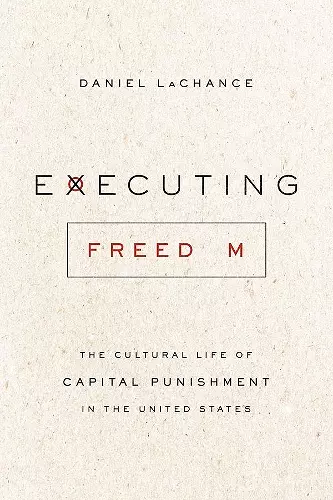Executing Freedom
The Cultural Life of Capital Punishment in the United States
Format:Hardback
Publisher:The University of Chicago Press
Published:16th Dec '16
Currently unavailable, and unfortunately no date known when it will be back

In the mid-1990s, despite low trust in government, many Americans supported the death penalty. This book explores its cultural significance and how perceptions have shifted over time, impacting its future.
Executing Freedom delves into the complex relationship between the American public's perception of the death penalty and their trust in government. Set against the backdrop of the mid-1990s, a time when public confidence in governmental institutions was waning, the book explores the paradox of widespread support for capital punishment despite skepticism about the government's ability to effectively manage other societal issues. Author Daniel LaChance investigates why many Americans believed the government should wield the ultimate power over life and death, even when they questioned its competence in other areas.
LaChance draws on a diverse range of sources, including congressional hearings, political speeches, and cultural artifacts such as Truman Capote's In Cold Blood and the film Dead Man Walking. Through these lenses, he illustrates how public attitudes toward the death penalty have mirrored broader societal shifts regarding the role of the individual in relation to the state. The book highlights how, emerging from the disillusionment of the 1970s, the death penalty became a compelling symbol for many, representing the government's capability to enforce moral order and justice.
However, LaChance argues that the very shortcomings of capital punishment—its failure to achieve the ideals it purported to represent—may ultimately lead to its decline in American society. By examining the interplay between cultural narratives and legal practices, Executing Freedom offers a thought-provoking analysis of how the death penalty has evolved and its potential future in a nation grappling with its values and beliefs about justice and authority.
ISBN: 9780226066691
Dimensions: 23mm x 17mm x 2mm
Weight: 539g
272 pages